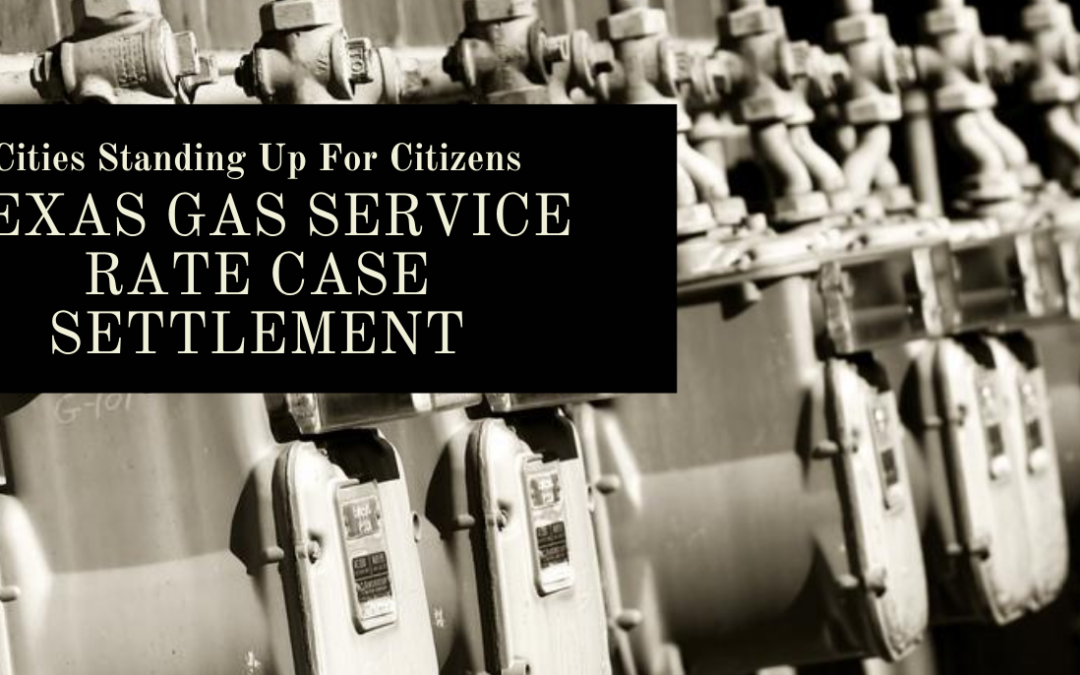August TGS Rate Case Settlement leads to Avoided-Cost Savings.

We recently analyzed a series of Texas gas utility rate cases, comparing the companies’ requested hikes with final approved rates. We also have analyzed utility rate requests in which cities intervened for their citizens, as well as those without city intervention.
Our findings: when cities defend their citizens’ interests in gas utility rate cases, those citizens save money.
But our earlier analysis of major rate cases (conducted by the ACSC in May) only included those brought by two major utilities: Atmos Energy, with holdings around Dallas, Fort Worth, Central and West Texas; and CenterPoint Energy, based in Houston.
In August 2020 regulators approved a settlement in a rate case brought by another major gas utility — Texas Gas Service. Cities intervened in the case to defend their citizens’ interests. We analyzed this case and found that — similar to previous ones — city involvement contributed to substantial avoided-cost savings.
THE DETAILS
On Dec. 20, 2019, Texas Gas Service Company, a Division of ONE Gas, filed documents to change gas rates in its various service territories. These include territories encompassing the City of Beaumont, its Central Texas Service Area (“CTSA”) and its Gulf Coast Service Area (“GCSA”).
TGS sought to increase rates system-wide by $15.7 million annually. The utility also sought to consolidate the CTSA, GCSA, and the City of Beaumont service areas into a single area which it would call the Central-Gulf Service Area, or “CGSA.”
Cities intervened and after hard-fought negotiations, TGS agreed to cut its proposed rate hike by more than a third, to $10.3 million.
The Railroad Commission of Texas (the state agency that oversees gas utility rates) approved the settlement on Aug. 4. The Commission also authorized the utility’s request to consolidate its service territories. Analysts believe that the commission’s willingness to approve that consolidation could lead to other gas utilities making similar requests.
THE BACKGROUND
Under state law, cities possess “original jurisdiction” over rates charged by monopoly gas utilities. This means that gas companies must first go to cities for authorization before raising rates within city limits. The law similarly gives cities the power to intervene at the state level if a utility contests their local rate decisions.
This bifurcated system helps preserve local control, and (as these ACSC analyses demonstrate) results in avoided-cost savings for ratepayers. In major rate cases previously analyzed by the ACSC, gas utilities requested $169.7 million in annual hikes but — after cites got involved — those combined hikes were cut approximately in half. The annual avoided costs savings in those cases ranged from $2.3 million annually to more than $50 million annually since 2012. The avoided-cost savings identified in this year’s TGS case will be approximately $5.4 million annually.
By contrast, Texans typically find themselves at a disadvantage in gas utility cases without city intervention. See, for instance, our report on the Gas Reliability Infrastructure Program, found here.
More information about this TGS case and other major rate cases can be found on the website for the Texas Railroad Commission. The docket number for the TGS case is 10928. The docket numbers for the utility cases analyzed earlier by the ACSC are 10669, 10580, 10567, 10432, 10182, 10174 and 10170.
–– R.A. Dyer

